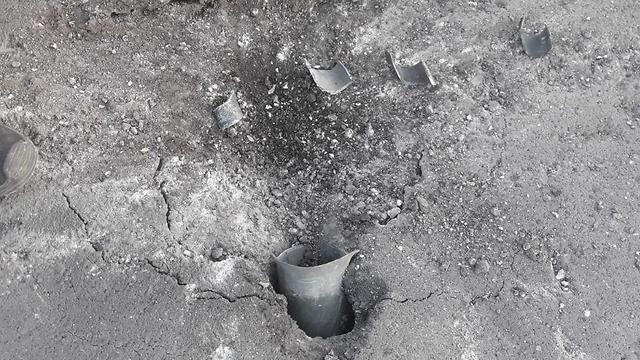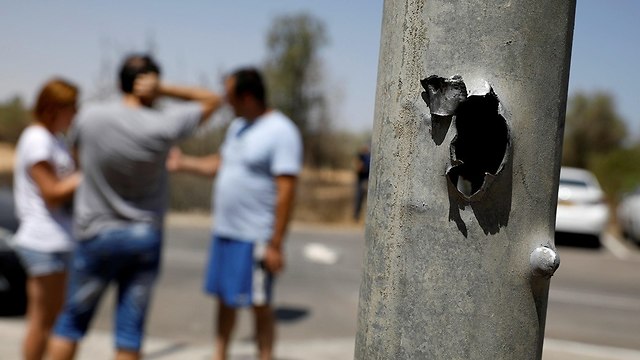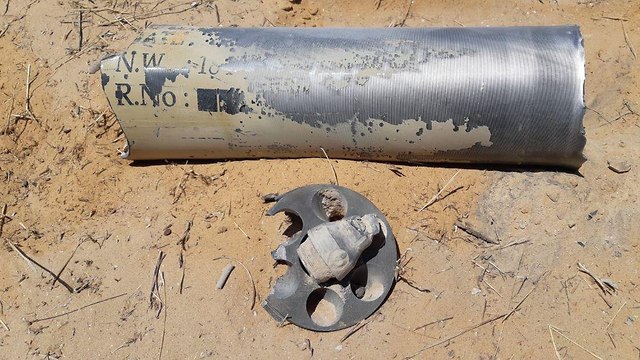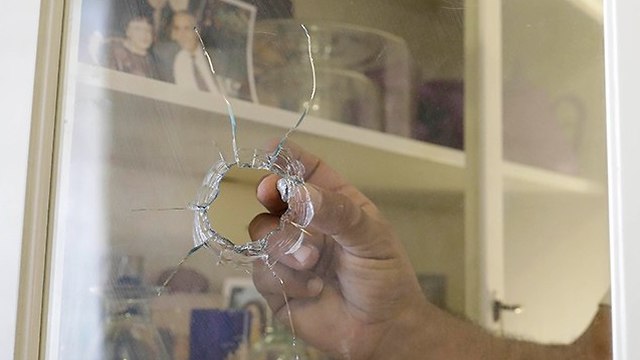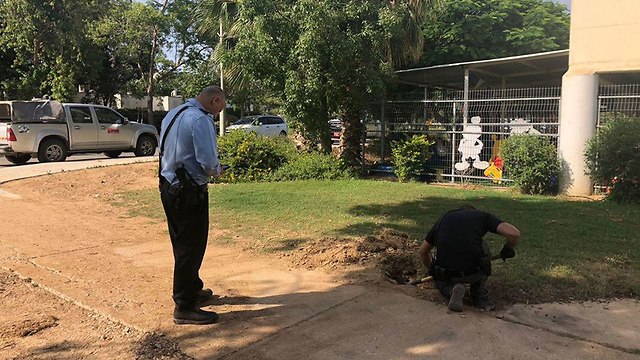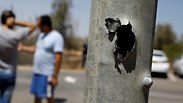

Gaza border communities call for a political solution
Southern residents go through another night of sitting inside bomb shelters as some 45 rockets and mortar shells fired at them from Gaza; feeling more warfare and power demonstration will not solve the ongoing situation, they demand diplomatic measures.
Ahuva Ilani, who resides in the Eshkol Regional Council told Ynet, "We must resolves this, but not with means of endless warfare and power. I expect the matter to be solved by political means."
Ilani described how a mortar shell landed near a nursery. "It happened when nobody had arrived yet. The nursery is responsible for babies ranging between the tender ages of six or seven months old to 18 months old. It's frightening."
She added that so far the government had not provided a solution to the security tensions on the Gaza border and that, in her opinion, warfare was not enough. "We can see it's not enough. I've been living here for 50 years."
About 45 rockets and mortar shells were fired at Israel from the Gaza Strip on Tuesday night, with at least five exploding in Gaza vicinity communities.
There were no reports of injuries, but damage was sustained. One mortar shell exploded on a pathway near a nursery in the Eshkol Regional Council.
Seven rockets and mortars shells were intercepted by the Iron Dome air defense system, and at least three landed within the strip.
Multiple sirens were sounded in the Gaza vicinity throughout the night, being the night with the biggest number of sirens since Operation Protective Edge four years ago. A similar escalation took place two weeks ago.
The IDF defined the barrage as “a serious rocket offensive against Israel’s home front,” saying that “Hamas is leading the Gaza Strip and its residents to deterioration and escalation.”
The escalation occurred on the backdrop of the “kite terrorism” and the incendiary and explosive balloons dispatched from the strip, which have sparked huge fires in the Gaza vicinity. In response, the IDF attacked three targets in the southern strip shortly after midnight Tuesday, and Hamas retaliated—and claimed responsibility.
Ori Hai, another Eshkol Regional Council resident, spoke about the hours she and her family had to spend in the bomb shelter during the rockets and mortar shell barrage launched from Gaza.
"We have a lot of practice, and I'm not that anxious, but it feels bad. We went down and stayed inside the bomb shelter until it was all over,' she described.
"There is a distinct sensation in the air that an escalation is on the rise," she went on to say.
Hai said she went to work with concerns. "The way was a little bit scary but everything went back to normal and so are we. This is the best way to act.
"I'm not saying we have no concerns, but we must go on with a smile, even at 5 am. We just have to be alert," she opined.
The kite terrorism has also reached Hai's community. "It's unpleasant to wake up and see the entire land is scorched. We also worry about incendiary kites landing in our backyard and exploding, it's stressful."
"When I look right and left everything is scorched, and it's so sad," she lamented.
Resident Benny Hason said that despite the fact that the daycares are sheltered, one of the community's main concern is protecting the children attending the informal education facilities.
"Tomorrow we commence our summer activity. Our children will spend all day long in unsheltered spaces since our informal education facilities don't include bomb shelters," he elaborated.
"As long as we feel concern we won't have a normal schedule. Yesterday we went to the fields to detect (incendiary) kites that might instigate a fire and burn our fields and if needed to call the firefighting crews," he explained.
"We spent the entire night under the threat of Qassam rockets and mortar shell barrage launched at us from Gaza. Luckily, we have the Iron Dome system that manages to intercepts them."














